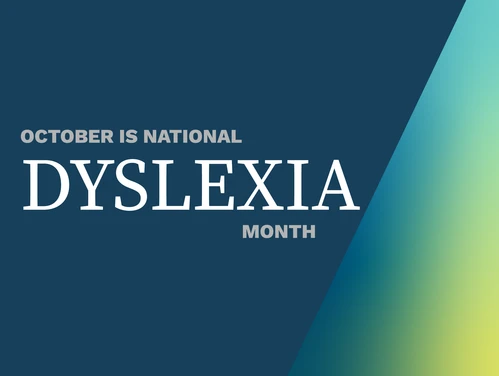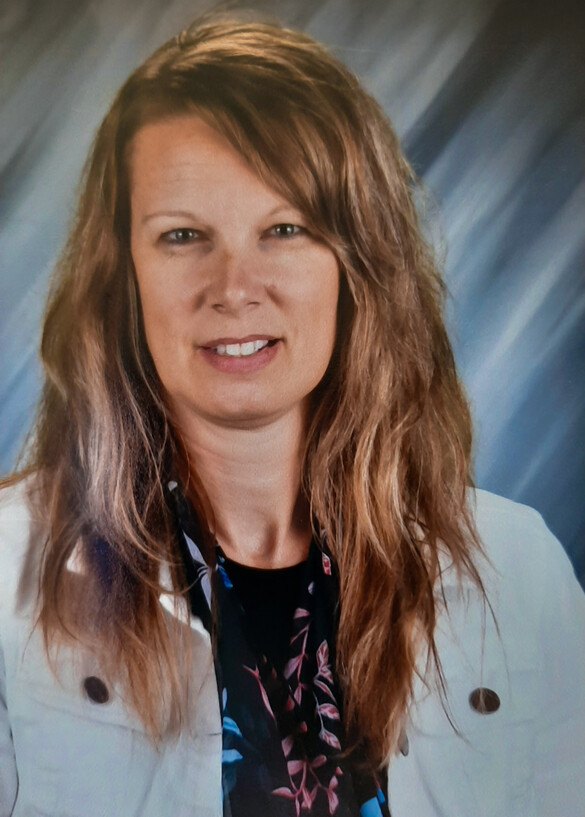If you want to see empowerment in action, spend a day with dyslexia specialist and educator Bambi Boggs. She is making a difference within the Ottumwa Community School District, assisting teachers and families and advocating for high-quality, systematic literacy instruction for students with dyslexia or who have characteristics of dyslexia.
Dyslexia is a learning disability that is characterized by difficulties with word recognition, spelling, decoding and phonological components in language, which can impact reading, writing and vocabulary skills. As a person with dyslexia herself, Boggs is passionate about finding solutions and evidence-based interventions that can help propel students to success, not only in literacy but also life in general.
“Dyslexia is throughout my family tree and I was diagnosed with it as an adult, so I know how hard it can be,” she said. “You need to be able to read. We cannot expect students to leave the classroom and become successful adults without it.”
In her role as the dyslexia specialist for Ottumwa, Boggs works across the district’s PK-12 school buildings to observe and assist students and teachers. Dyslexia specialists like Boggs are not licensed to officially diagnose dyslexia, but they can identify characteristics and are vital for providing practical, evidence-based assistance. Boggs partners with classroom teachers on explicit instructional techniques and other resources and ensures both the student and teacher are well-supported. She plays an integral role in developing and revising individualized education plan (IEP) goals to fit the needs of the student and captures data and reporting. Additionally, Boggs also leads the Ottumwa Community Schools’ dyslexia board and Science of Reading leadership team, which includes district teachers and representatives from the Great Prairie Area Education Agency and University of Iowa’s Iowa Reading Research Center.
“It takes everyone working together and building knowledge together to move things forward,” she said. “I get paid to ensure kids learn how to read. Nothing has stopped me from this goal yet.”
Boggs is one of the first teachers in the state to earn the dyslexia specialist endorsement through an intensive 18-month course at the University of Iowa. The dyslexia endorsement program, which is now also offered at Grandview University, allows educators to identify students with characteristics of dyslexia, review data and research findings and administer assessments that can help guide instruction implementation and material selection based on student skill gaps.
“The dyslexia specialist endorsement is an innovative step forward for Iowa and will benefit many students who have characteristics of dyslexia,” said Wanda Steuri, education consultant at the Iowa Department of Education. “Children and youth with dyslexia need more support in developing their reading skills as they transfer the language of their speech to the code found in print. Teachers with the dyslexia specialist endorsement can help schools develop structured literacy lesson plans and systematic programs that leave nothing to chance.”
Along with her work at Ottumwa, Boggs is also active in a number of statewide and international boards on dyslexia. She currently serves on the State of Iowa Dyslexia Board, the Decoding Dyslexia of Iowa Board and the Iowa chapter for the International Dyslexia Board.
Boggs is also committed to assisting and advocating for parents who are navigating what dyslexia is as well as the IEP process and understanding what resources are available to them.
“It can be intimidating for parents and families,” she said. “They want the best for their kids. It’s important they know what resources are available at school and through the AEA.”
Building awareness and an understanding of dyslexia and the resources available is a key part of Boggs’s position – and she is fully committed to continuing her work as she has seen its impact first-hand.
“It’s empowering and motivating to see students learn, even if it’s hard at times,” she said. “I love this job. I would do it for free. I want every child to be literate.”
October is National Dyslexia Month.

